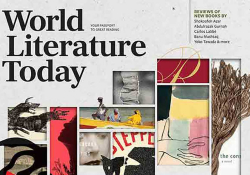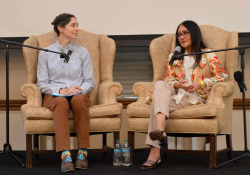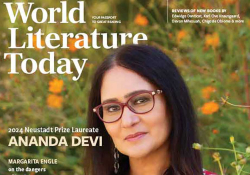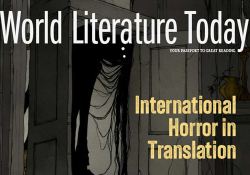Editor’s Note
 Activism will always be about stories, which I believe save lives. – Emily Rapp Black
Activism will always be about stories, which I believe save lives. – Emily Rapp Black
WHEN THE SELF-PROCLAIMED “Indians of All Nations” occupied Alcatraz Island in November 1969, the audacity of their revolt swept “like a hurricane” (to echo the title of Paul Chaat Smith and Robert Allen Warrior’s book on the era) back eastward across the United States. What started out as an attempt by fourteen Native students to reclaim the abandoned site of the once-legendary prison turned into a nineteen-month occupation that galvanized the Nixon administration’s attention back in Washington, DC, and led to other confrontations at the Bureau of Indian Affairs, Plymouth Rock, Wounded Knee, and beyond in the early 1970s. Like other islands in the country’s history—Ellis, Galveston, Key West, and Angel among them—Alcatraz came to symbolize a political and cultural “port of entry” in the mainstream American consciousness, a space-in-between open water and the mainland used as often to restrict entry as to welcome arrivals. As the continent’s Indigenous inhabitants, Natives rightfully exercised sovereignty over such loci of contact.
In “The Alcatraz Proclamation,” the occupiers mockingly offered to buy back the island from the US government for “twenty-four dollars in glass beads and red cloth,” then promised to give back part of the land to be held in trust by the “Bureau of Caucasian Affairs” (tolerance.org). As Dean Chavers—part of the second group of seventy-eight occupiers—notes in his essay “Alcatraz Is Not an Island,” whereas the “ostensible reason” for the occupation was to “reclaim Indian land,” the “real outcome was the sea change in federal Indian policy” that ensued during the Nixon era.
In 2019, fifty years later, the echoes of that era’s literary and political activism continue to reverberate. As the Los Angeles–based Chinese poet, editor, and translator Ming Di reminded me when I invited her to nominate a book for our activism writers’ poll in this issue, “2019 is also the 30th anniversary of the 1989 Tiananmen Protest in China followed by the June 4th Massacre, the 30th anniversary of the fall of the Berlin Wall followed by the collapse of the Soviet Union (democracy won in Europe but failed in China), and the 100th anniversary of the May 4th Cultural Movement in China.” August 2019 also marked the 400th anniversary of the arrival of enslaved Africans to the British colony of Virginia. Such milestones, whether in Asia, Africa, Europe, or the Americas, challenge us all to reflect on our part in the systems we’ve inherited and, often, defend.
For the writers, artists, and translators featured in the literary activism section, art represents both a defense against violence as well as a cultural tool to enact change—both “shield” and “weapon,” in the words of Tanaya Winder (page 93). Guest editor Allison Hedge Coke offers a passionate, poetic introduction to the section, which she frames in her father’s memory. In the pages that follow, writers from a broad sweep of the Americas take on every sort of injustice—historic, linguistic, environmental, economic, geographic—and counter physical, psychological, and emotional violence with words of witness that promote greater measures of equity, empathy, and inclusion.
In a 2015 essay on cultural activism, New York–based organizer Caron Atlas, director of the Arts & Democracy Project, reflects on the more than three decades she has spent fighting on behalf of social justice. “I have seen how art and politics, individually and together,” she writes, “can expand the world or diminish it, reinforce the status quo or re-imagine it. Believing that another world is possible—and making it happen—is a deeply creative act, mixing vision and agency. It also means seeing ourselves as part of a greater whole. This whole includes being part of a history of creative activism, and recognizing that art does not make change alone” (The Routledge Companion to Art and Politics).
At the very least, art can force us to see the need for change. The art- and wordsmiths in the pages that follow insist that we open our eyes when we’re most tempted to close them to the world around us.
Daniel Simon









